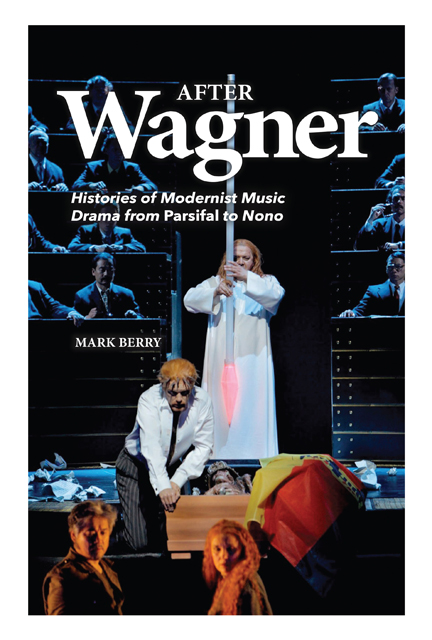Book contents
- Frontmatter
- Contents
- List of Music Examples
- Acknowledgements
- Dedication
- Introduction: ‘After Wagner’
- Part I In the Shadow of German Idealism: From Parsifal to Capriccio
- Part II Composition after the Second World War: From Germany to Italy, and Back Again?
- Part III Performance and the Fruitful Instability of the Work: From Parsifal to Nono
- Bibliography
- Index
Part I - In the Shadow of German Idealism: From Parsifal to Capriccio
Published online by Cambridge University Press: 24 February 2023
- Frontmatter
- Contents
- List of Music Examples
- Acknowledgements
- Dedication
- Introduction: ‘After Wagner’
- Part I In the Shadow of German Idealism: From Parsifal to Capriccio
- Part II Composition after the Second World War: From Germany to Italy, and Back Again?
- Part III Performance and the Fruitful Instability of the Work: From Parsifal to Nono
- Bibliography
- Index
Summary
Prelude
The first two parts of this book progress in broadly chronological fashion – though not without offering some conception of alternatives in historical writing. Straightforward narrative is far from the only form available to the historian, or indeed to the creator of the Ring-cosmos, but it retains an honoured place. Here, Parsifal is considered not only in itself but very much ‘after the Ring’ and, to a certain extent, after the Wagner of his other works too.
Yet, as we shall see, the seeds of the composer’s final music drama were sown many years previously, at least as early as an 1846 visit to Marienbad. Indeed, reading during his first stay in Paris, six years or so earlier, may actually have proved an ‘earlier beginning’, as it were, to Wagner’s conception. We are not always sure – a state of affairs which may both frustrate and incite. (Such is an issue that will also be considered in the final chapter, with respect to the instability of the musical work, to Wagner’s own Zurich ‘version’ of Don Giovanni and some of its successors.) At any rate, immediately following the completion of Tannhäuser, that Marienbad cure afforded Wagner the opportunity to consider not only a fuller, more detailed conception of Lohengrin than had previously been the case, but also the dramatic sources for Die Meistersinger and Parsifal. In one sense, then, if not ultimately an especially important one, Parsifal may have been born before the Ring. Whatever the historical constructions we outline, both the ‘facts’ and the ‘meaning’ we draw from artworks always prove more complicated than the tidiness of rationalisation and schematisation would permit.
Wagner’s method is born in, revels in, such complications. His tendency to ‘follow on’ from previous works will be discussed more fully, likewise his striking ability, less sceptical than magnificently generative, to ask questions whose scope lies not only beyond his own ability to answer them, but often beyond that of subsequent generations too. We witness both battle and cross-fertilisation between two strikingly different conceptions of history and of time, which we may broadly associate with Hegel and Schopenhauer, conceptions which shape our interpretation of the work – but which also may prove to be shaped by the work.
- Type
- Chapter
- Information
- After WagnerHistories of Modernist Music Drama from Parsifal to Nono, pp. 21 - 25Publisher: Boydell & BrewerPrint publication year: 2014



